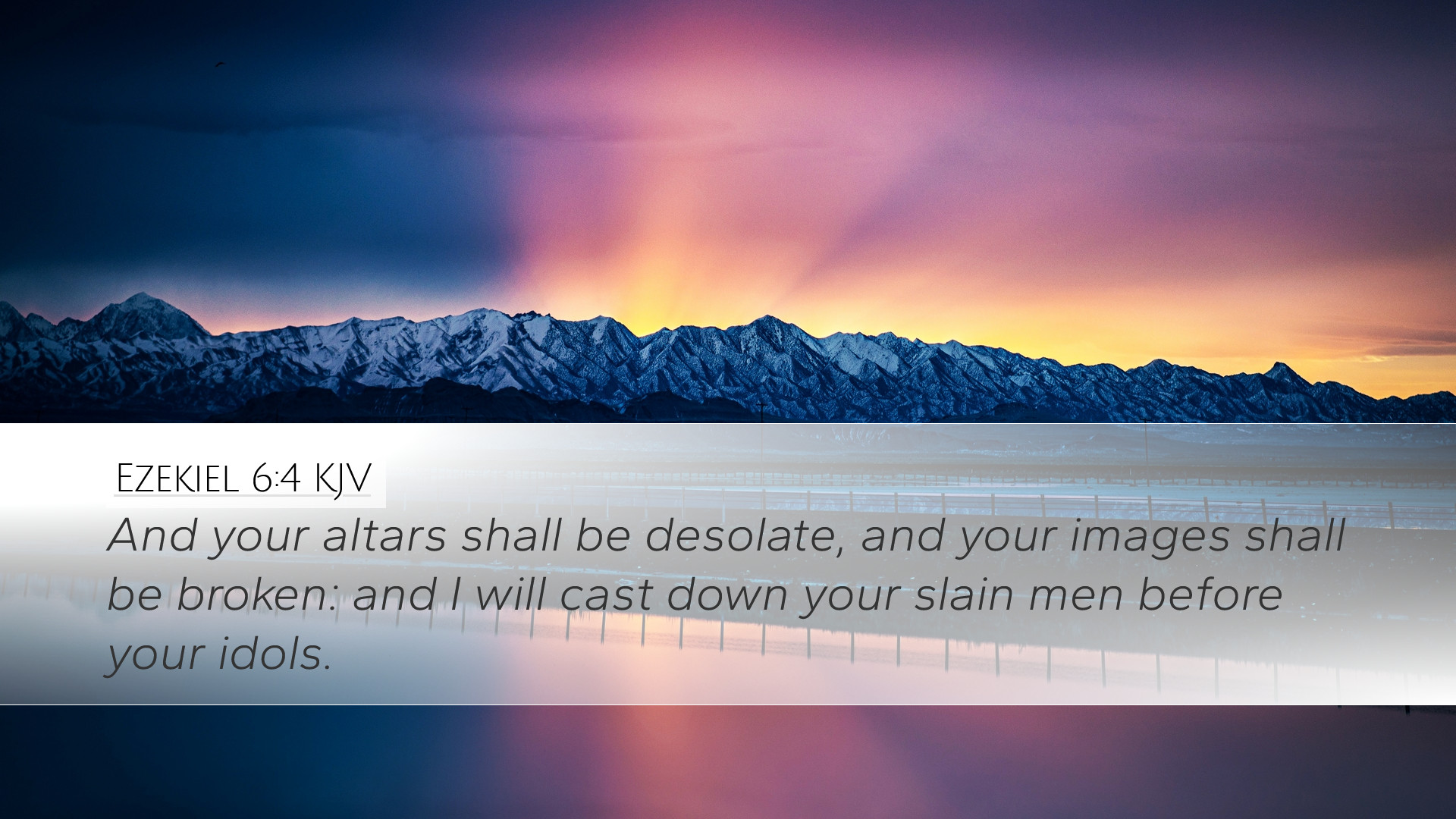Ezekiel 6:4 - Commentary and Insights
Bible Verse: Ezekiel 6:4 - "And your altars shall be desolate, and your images shall be broken: and I will cast down your slain men before your idols."
Context and Background
In understanding Ezekiel 6:4, it is essential to recognize the historical and theological context of the Book of Ezekiel. Ezekiel, a prophet during the Babylonian exile, addressed the exiled Israelites with messages of judgment, repentance, and eventual restoration.
Theological Reflections
This verse speaks to the theme of divine judgment against idolatry and the destruction of false worship. Ezekiel emphasizes that God’s judgment is not arbitrary but ordained as a response to the unfaithfulness of His people.
Matthew Henry’s Commentary: Insights on Idolatry
Breaking Down Idols: Matthew Henry highlights that the verse serves as a divine declaration that the altars—symbols of worship—will be made desolate. The desolation of altars signifies the end of false worship practices that had led Israel astray.
- Consequences of Idolatry: The breaking of images points to the futility and ultimate destruction of idols cannot withstand God’s judgment.
- Warning to the Faithful: This serves as a stark warning to the faithful, reaffirming their need to remain true to God amidst surrounding pagan practices.
Albert Barnes’ Notes: The Fate of the Idolaters
God’s Judgment on Dissonance: Albert Barnes notes that the passage emphasizes the inevitability of judgment for those who worship false gods. The act of casting down slain men before the idols underscores the powerless nature of these deities.
- Symbol of Despair: The slain men represent the consequences of spiritual betrayal, revealing how dependence on idols leads to destruction.
- Call to Repentance: Barnes emphasizes that such judgments aim to bring about repentance among the people, steering them back to the true worship of Yahweh.
Adam Clarke’s Commentary: The Nature of Divine Retribution
Retribution as a Theme: Adam Clarke elaborates on the theme of divine retribution within this verse. He observes that the imagery used by Ezekiel reflects a stark reality of the consequences of sin.
- Divine Authority: Clarke asserts that God’s authority mandates that all forms of rebellious worship be dismantled, as they conflict with His holiness.
- Judgment and Mercy: He further notes that even within the judgment, there exists a call for restoration, highlighting God’s desire for reconciliation with His people.
Practical Applications
The implications of Ezekiel 6:4 for contemporary ministry and personal faith are profound. Ministers, theologians, and students of scripture may reflect on several key areas:
- The Nature of God’s Judgments: Recognizing that God does not tolerate idolatry reinforces the seriousness of worship in the life of a believer.
- Spiritual Integrity: Individuals and congregations are called to examine their lives for any idols—whether material, personal ambitions, or ideological commitments—that may have taken precedence over their relationship with God.
- Hope Amidst Judgment: The promise of restoration embedded in God’s judgment provides hope and motivating encouragement for spiritual renewal and growth.
Conclusion
Ezekiel 6:4 serves as a profound reminder of the consequences of straying from the true worship of God. With insights drawn from the rich commentaries of Matthew Henry, Albert Barnes, and Adam Clarke, one can appreciate the depth of this prophetic text. It calls for an introspective look at our worship practices and highlights the necessity of fidelity to God in a world full of distractions and false gods.


